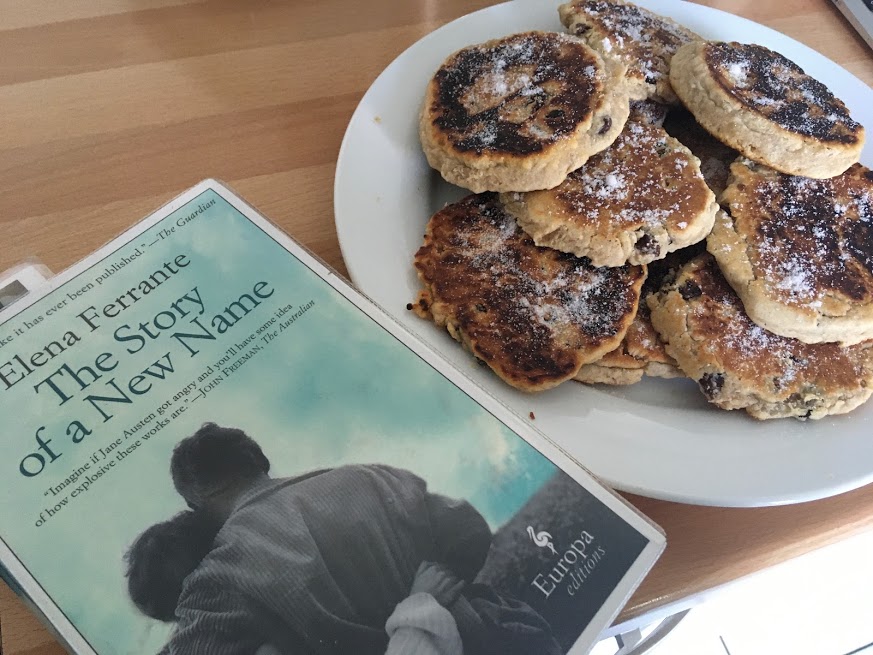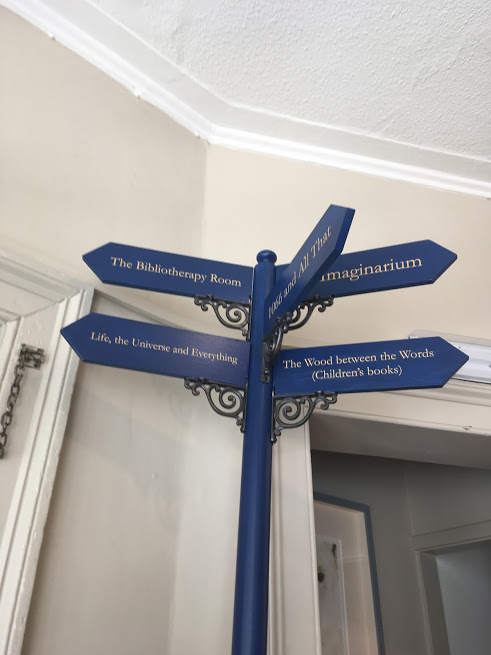I read thirty books this last year. You’d think, given lockdown and whatnot, that I’d have managed to read more than before, but I’m probably not alone in experiencing a continued dearth of leisure time. I suspect the hours previously spent commuting got absorbed by actually working more hours while at home, plus just, you know, trying to make life go on through the upheaval. Here are my very top ten out of a lot of good, transporting reads.
The Underground Railroad by Colson Whitehead
In this partly historical, partly speculative story about pursuing freedom, Mr. Whitehead laid nearly all the eras of American racist atrocities out concurrently. It’s a rough look in the mirror but essential. He also tried to illuminate the inner life of a person born and raised in enslavement, and how it might limit one’s focus. I found the protagonist Cora compelling for her determination and understandable cynicism, and it was deeply irritating to see some Goodreads reviews complaining that she wasn’t sunny enough.
“A small freedom was the worst punishment of all, presenting the bounty of true freedom in painful relief.”
The Lie Tree by Frances Hardinge
A fun and thrilling novel about exploring natural history in the latter part of the nineteenth century, and women’s roles in such discoveries. Set in an old mansion by often violent seas, it turns into a murder mystery with small-town treachery, solved by a really clever 14-year-old girl protagonist. This was my Christmas holiday feast following my own fossil-digging expedition the week before.
“It must be very relaxing being Mr. Jacklers, deaf to the crunch of other people’s feelings beneath his well-intentioned boots.”
The Story of a New Name by Elena Ferrante

I read the whole Neapolitan series at the start of this year, starting while we were actually in Sorrento, about an hour’s train ride south of Naples. They’re all intriguing, with intimate portrayals yet surprising turns. Elena’s educational journey, though, and the defiance of Lila’s first marriage including the perspective of her confused and brutal husband, made this possibly my favourite in the series.
“She deserved Nino, in other words, because she thought that to have him meant to try to have him, not to hope that he would want her.”
Smash All the Windows by Jane Davis
An award-winning, self-published novel about families coping with the aftermath of a disaster and the inquiry into its causes. Jane Davis created such beautifully nuanced characters in this, it’s hard to believe it was fiction, and I loved the added angle of using art to cope with grief. She also showed impeccable timing in revealing the different pieces and perspectives of the original event. You can read more about the writer’s process and her other (also acclaimed) work in this interview with author Sarah Tinsley.
“‘Artists have to make choices. We can make a small noise about a lot of things or a lot of noise about one thing.’”
Girl, Woman, Other by Bernardine Evaristo
Another superbly crafted book with an enormous cast. It delved into so many different lives, spanning race and sexuality, making each person believable and sympathetic. I loved the ending, when every character was quite perfectly brought together. For me, the narrative style of line-by line rather than in standard paragraph form really worked, as if reading thought fragments, pulse by pulse. I found myself conducting my own observations in the same rhythm for a couple of weeks, it was so transfixing.
“the house breathes differently when Yazz isn’t there
waiting for her to return and create some more noise and chaos
she hopes she comes home after university
most of them do these days, don’t they?
they can’t afford otherwise
Yazz can stay forever
really”
Dinner at the Homesick Restaurant by Anne Tyler
I hadn’t read any Anne Tyler yet, and I loved this first taste, the idea of the Homesick Restaurant, where diverse chefs cook a favourite home meal different each night, plus of course the distinct characterisations of the whole family in the story. It reminds me of John Irving’s work, which I usually love—but a little more concise and sort of snarky, too. I mean, check out this sample which says so much about the family:
“His mother told Jenny not to slouch, told Cody not to swear, asked Ezra why he wouldn’t stand up to the neighbourhood bully. ‘I’m trying to get through life as a liquid,’ Ezra had said, and Cody (trying to get through life as a rock) had laughed.”
Hamnet by Maggie O’Farrell
A family story and a plague story, this was stunningly immersive. It spins the normal, patriarch-oriented history on its head by never referring to England’s most famous writer by name. He is merely The Tutor, or Agnes’s husband, or Susanna’s or Hamnet’s father. This twist comes off as perfectly natural amidst the insightful re-imaginings of Agnes Shakespeare (Anne Hathaway), and her three children. The smart, strong, grieving mother will stay in my thoughts at least as long as any of her husband’s characters.

“Why would she ever want to behold anything else, when she could be taking in the sight of Susanna’s ears, like the pale folds of roses, the winglike sweep of her tiny eyebrows, the dark hair, which clings to her crown as if painted there by a brush? There is nothing more exquisite than her child.”
A Tale for the Time Being by Ruth Ozeki
In a year with minimal travel, more than ever I love a book that can transport me. This one balances two storylines, doubling the mileage. There’s the story of 16-year-old Nao in Tokyo, her suicidal father, her Buddhist nun great-grandmother Old Jiko, and Jiko’s son who was killed fighting (or appearing to fight) in WWII. There’s also Ruth’s story, as she finds Nao’s diary washed up on a remote Canadian Pacific island. This was a great epic about life and death and purpose, while being warm and cheekily authentic.
“Does the half-life of information correlate with the decay of our attention? Is the Internet a kind of temporal gyre, sucking up stories, like geodrift, into its orbit?”
Circe by Madeline Miller
Having written my own book from the perspective of Eve, I was eager to read another female-perspective story about an oft-maligned mythological character. Circe the witch, as portrayed here, tells her story in a way I really connected to; she’s empathetic to all others and unassuming about her own power. I preferred hearing about her with the gods and heroes as mere cameos rather than reading their often similarly told stories, and I appreciated the world-building more from this less entitled narrator.
“The darkness around us shimmered with clouds of the Trygon’s gilded blood. Beneath my feet were the bones of a thousand years. I thought: I cannot bear this world a moment longer.
“‘Then, child, make another.’”
Do Not Say We Have Nothing by Madeleine Thien
Another epic—a bit more serious, a bit more dense, yet truly rewarding and beautiful. We have Marie in Vancouver, seeking her beloved sort-of-cousin Ai-Ming in China. Much of the book is recounting Ai-Ming’s stories about her grandmother, Big Mother Knife, in WWII China, then her father Sparrow adjusting to the fluctuating restrictions and demands of Communism, up to Ai-Ming’s own survival of the Tiananmen Square Massacre. We’re treated to examples of how love and creativity manifest themselves through oppression and separation. There’s so much in this book, maybe it best speaks for itself with this quote:
“‘Don’t ever try to be only a single thing, an unbroken human being. If so many people love you, can you honestly be just one thing?’”
Looking at this list, 9 of my top 10 reads last year were written by women. Not surprising as I only read 7 books by men in 2020. This wasn’t planned or anything, these were just the books I really wanted to read, and through a pandemic, and painful separations, they made me feel I was in the best possible hands.
What were your favourite reads in 2020? Did you have different or similar reactions to the books I’ve read? Do you think current events coloured your choices and your interpretations?